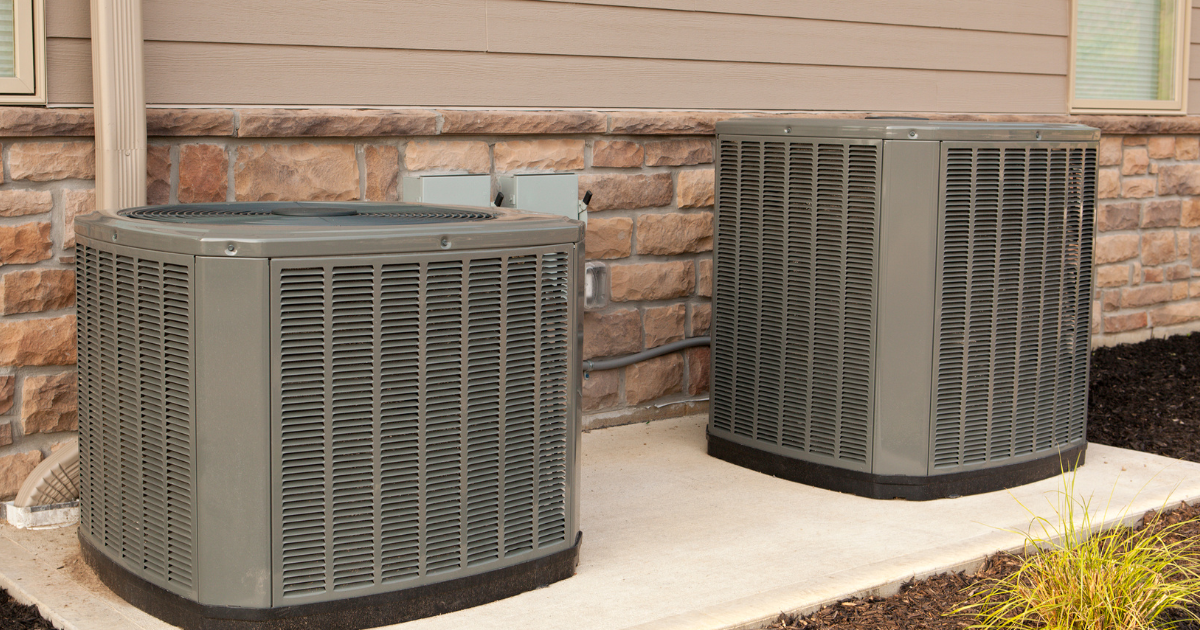Heat Gain Calculations
If you are curious about the way your HVAC system works, you have possibly heard the phrase “heat gain calculations.” What does this mean? Heat gain sources include different types of heat sources, such as:
- Solar Gain of direct sunlight through windows
- Solar Gain of sunlight directly on building surfaces and conducted through walls/ceilings into the space
- Warm outdoor air infiltrating the space and brought in via power ventilation
- Lighting and Equipment running in the space producing waste heat
- People Loads
The largest source of heat gain depends on the type of building, mainly how much and what type of glass it has and how the glass may or may not be shaded, and the type of roof.
Basic Formulas
The formula used to calculate heat gain from thermal conduction (outside ambient temperature during the cooling season) is the same basic formula as the Heat Loss Formula, [(Square Foot Area) x (U-Value) x (Temperature Difference)]. If the space is mechanically cooled, every BTU of heat that gets in above the set-point, must be removed to maintain the desired temperature.
The amount of humidity in the indoor air is influenced both by the outside weather conditions and what is going on inside the conditioned space. Just as it takes 970 BTUs to vaporize a pound of water, it takes 970 BTUs of cooling energy to condense a pound of water vapor. (In reality, the condensed water gives up 970 BTUs into the colder air conditioning medium.) If humidity will be removed by condensation on a conventional air conditioner coil, then the formula is: (Cooling BTUS Required) = (970 BTUs) x (pounds of water removed). Humidity can also be removed via ventilation air, desiccant dehumidification systems and energy recovery systems. These systems do not use vapor condensation in order to remove humidity.
Sun light transmitted directly through windows (glazing) represents a huge potential cooling load. This load is calculated according to a ‘solar gain factor’ per square foot of glazing. The solar gain factor is a complicated series of factors multiplied together starting with the transmittance factor of the glass, and ending with all possible shading devices/methods and adjusted for local weather (cloud cover).
All of the electricity used by lighting and equipment inside the house eventually ends-up as BTUs of heat. These BTUs off-set heating requirements during the heating season, but are a source of cooling load the rest of the year. Every kWh contains 3,413 BTUs of heating energy.
Therefore, the formulas needed to calculate Heat Gain include:
- Building Surfaces: (Square Foot Area) x (U-Factor) x (Temperature Difference) = BTUs per Hour
- Glass Areas: (Solar Gain Factor) x (Square Foot of Window Area per direction/face of building)
- Lighting and Equipment Load: (kWh Total Load) x (3,413 BTUs/kWh) = BTUs per Hour
- People Load: (Number of People) x (200 to 400 BTUs/Person per Hour) = BTUs per Hour
- Ventilation Load: (CFM) x (60 Minutes/Hour) x (Number of People) x (0.018) x (Temperature Difference) = BTUs per hour
- CFM = as required by code per person per hour of occupancy
- 0.018 = specific heat of air factor (BTUs per Cubic Foot per degree F)
- Temp Difference = outside to inside SENSIBLE.
All of these loads added-up per hour, forms the basis for the Heat Gain Calculation.
Our HVAC Burlington, NC professionals are ready to serve your HVAC needs during this trying time. Assisting both residential and commercial clients, we provide heating, air conditioning repairs, installation, and maintenance, and more for your home or office. If you want HVAC Burlington, NC service that is quick, competitively priced, and easy to request – contact Barber Heating & Air now. We have the products and services you need in Burlington, NC and surrounding areas.
Request Service
"*" indicates required fields


